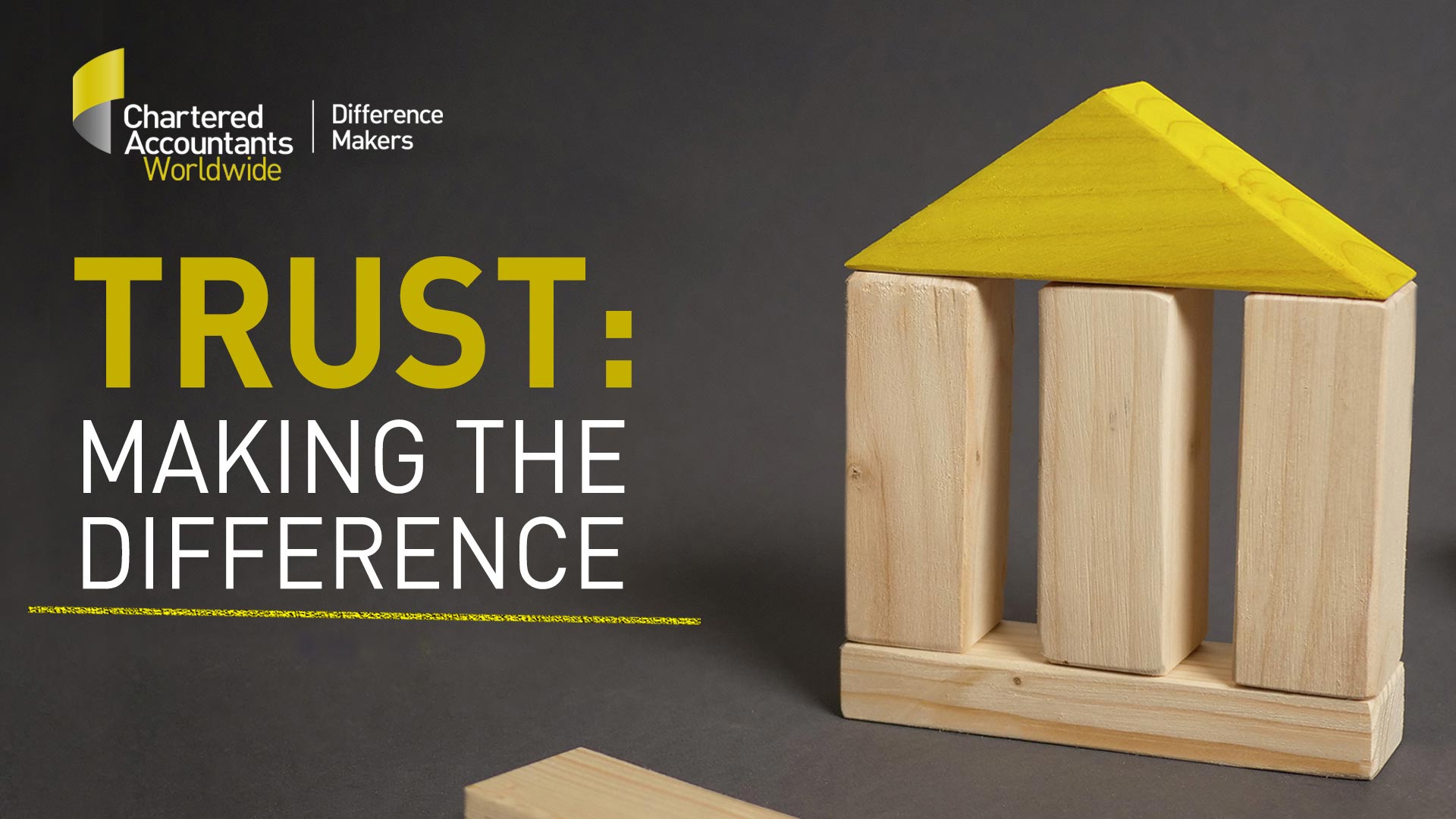Technology continues to make advances in almost all aspects of our business and personal lives. And it continues to encourage advances in good governance across the accountancy sector, businesses and public services.
However not all mediums are always used to their full potential. Training films have been around for years but the delivery is often ineffective; the regularly used static scenes of people sitting behind a desk in a grey office are quickly forgettable. Although underutilised, well produced films can bring to life every day issues and help organisations to train teams to a consistent level regardless of geographical location.
ICAEW films provides an impactful and interesting way to highlight the challenges of directors and professional advisers seeking assurance on difficult issues as well as the underestimated importance of effective communication.
At a time when trust in business and institutions is under challenge, we are using film to raise awareness of the importance of professional scepticism, ethics, good governance and ultimately trust. And, we’ve taken a different approach to bring a fresh perspective to learning the skills to tackle these professional challenges. ICAEW training films are filmed on location, with large casts of well-known British actors from television and screen and professional film crews using cinematic quality cameras. The end result is very engaging.
Each ICAEW training film is a drama in its own right. The script for our latest film, Without Question®, was developed in consultation with representatives from organisations that have used our first film, False Assurance®. They helped capture the main issues they see as being important for their teams and clients to be aware of. And both were written and directed by our Executive Director of Professional Standards, Duncan Wiggetts, who has written six training films to date.
Without Question
Set in a family-owned company, Without Question looks at the conflicts that this can create, the company’s difficult path towards becoming a listed entity and the founding shareholders’ struggle to cope with the loss of control involved. It also examines how the company reacts to the new independent directors making changes to improve governance.
Set in a family business, the audit scenario is accessible to firms of all sizes. Typical family business risks (a dominant major shareholder, some nepotism in the appointment of a junior director, and warring family members) throw up some challenges as the company seeks foreign expansion as the next step. Without previous experience of international expansion, the directors struggle to fully appreciate the business and political risks of this move. Later on in the film, we see the board’s new chair and non-executive directors ask some appropriate questions but they are nervous of upsetting the CEO. The result is that the difficult, but pertinent questions are not answered until it is too late.
The film highlights the importance of professional scepticism, a key skill for everyone from audit juniors through to board members to have and continually develop. As well as this, a tax storyline highlights risks to independence and objectivity, and the need for safeguards in accountancy firms to cover all services. We see the consequences of a contingent fee arrangement when there are no internal controls to mitigate the incentives to impress the client and maximise revenue for the accountancy firm.
An audit partner mentioned that having watched Without Question, it had made her more mindful to keep asking the pertinent questions. When in a similar scenario during a client audit committee meeting, she was asked if she was happy to sign off the audit. She said she felt able to ask the same question back to the board. This demonstrates how Without Question helps to highlight the essential trait of auditors to exercise their independence by challenging their clients to properly assess and conclude on risks to their own business, rather than simply relying on the auditor’s opinion alone. It shows board members / aspiring non-executive directors that by engaging in effective, two-way dialogue with the auditor, a board will get much more out of the audit process and, critically, improve its own risk management and corporate governance.
Film workshops
The running time for each film is approximately forty minutes and each film is divided into four or five parts. The USP of these films is the discussion that is facilitated after each section of the film. Participants are able to discuss and explore the issues facing the characters in the film in a safe environment; they don’t need to refer to what is going on in their real jobs.
Many organisations use the films within the context of workshops which can last between two hours and two days. Through these international accounting firm conferences and corporate training events, over 250,000 auditors and company directors have been coached using ICAEW films. We have subtitled versions of the films in many languages to help organisations that wish to train teams in multiple countries.
Supporting the next generation of chartered accountants
The films are also being used at universities to bring to life the challenges and complexities of the fast paced environment that chartered accountants operate in. Lecturers are using the films to illustrate how companies and boards operate through real-life scenarios and to explain the work of auditors and their role to give impartial advice to boards. They also help students to understand the importance of quality checking and the right way to interrogate information.
People learn and develop skills in many ways, our films provide an innovative way to bring to the fore the importance of continuously developing skills to tackle the issues around trust, ethics, good governance in business.
To find out more about the films visit icaew.com/films













